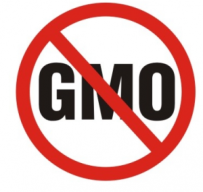 Connecticut became the first state in the U.S. to pass a law mandating that foods containing genetically modified ingredients (GMO) be labeled. But there’s a catch.
Connecticut became the first state in the U.S. to pass a law mandating that foods containing genetically modified ingredients (GMO) be labeled. But there’s a catch.
Governor Dannel P. Malloy has said he would sign the bill into law, after reaching an agreement with the legislature to include a provision that the law would not take effect unless four other states, at least one of which shares a border with Connecticut, passed similar regulations. Everything hinges on these northeastern states, which account for approximately 20 million people, taking action.
It’s understandable why the governor would insist on that caveat.
Cathleen Enright, executive vice president for food and agriculture at the Biotechnology Industry Organization, said labeling by an individual state might put that state’s industry and businesses at a disadvantage compared with other states.
Mark Kastel, co-director of the Cornucopia Institute, a non-profit farm policy research group, said that while the triggers were unusual, they could work to the labeling movement’s advantage. “The hurdles in the Connecticut bill, if surmounted, would mean a critical mass in the marketplace that would emulate the impacts that would have materialized if California had passed its ballot initiative,” Mr. Kastel said.
More than 20 other states are currently looking at passing similar laws, although with perhaps the exception of Washington state, none show much hope of passing them this year. But with the recent national marches against Monsanto and growing clamor by consumers for labeling laws, perhaps our politicians will begin heeding what their constituents want. At some point, the numbers speak too loudly to be ignored.
Filed under: Exciting New Developments | Tagged: Cornucopia Institute, genetically modified, GMO, Monsanto, politics |




Thankfully, Massachusetts has a few different GMO labeling bills under consideration. Hopefully, one of them gets through!